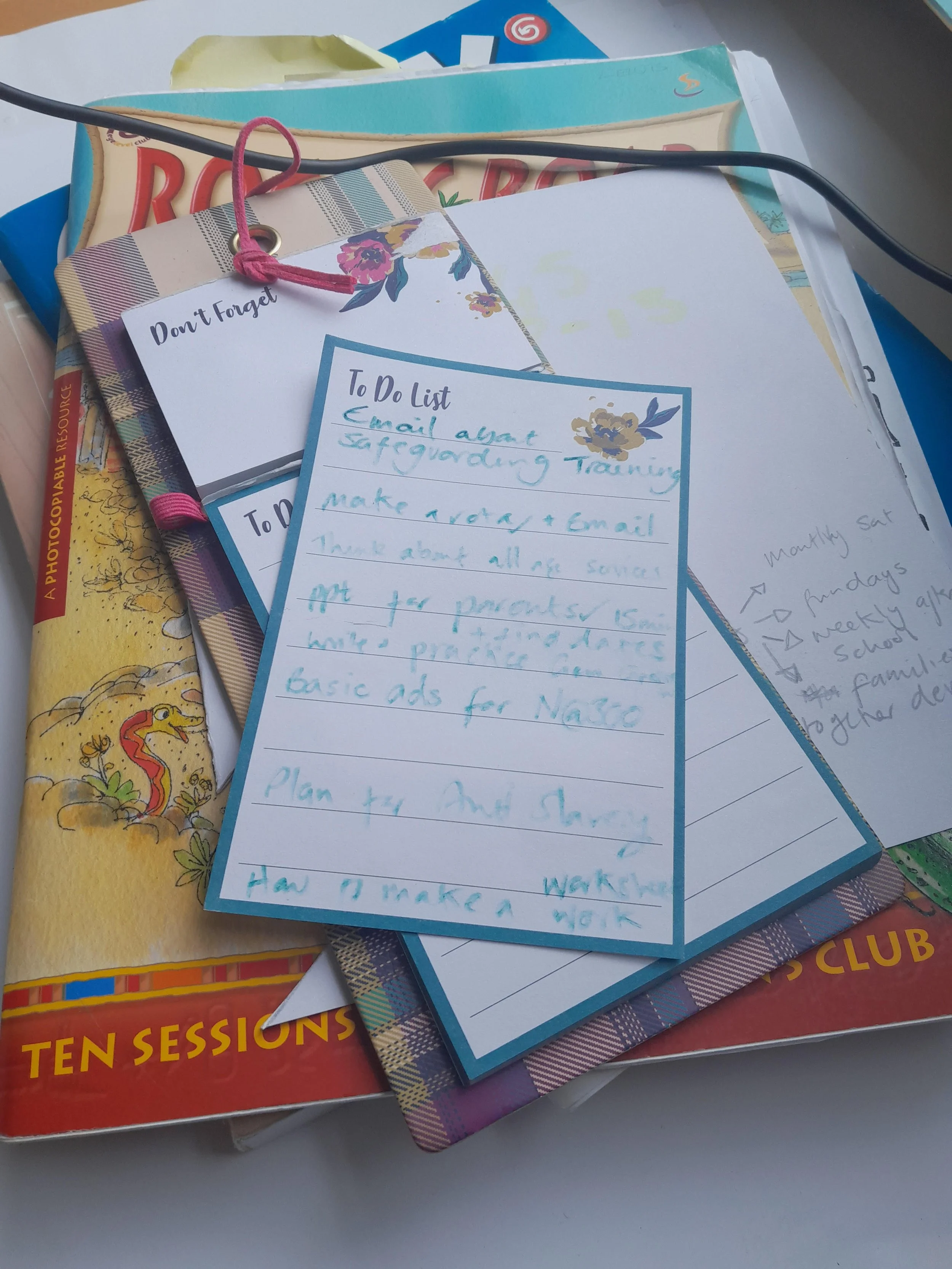Much like the 3 R’s in teaching (Reading, Writing, and aRithmetic) they don’t all begin with R. They have in fact been unintentional themes of the Growing Young Disciples conference, rarely a main point but often mentioned as an aside or in conversation around the dinner table.
Rhythm
This came from the opening talk of the conference, a long serving youth and children’s worker being interviewed about how he was able to stay in Ministry mentioned the need for the discipline to build rhythms into the work.
Gulp! I don’t and have never had much discipline or rhythm.
But it kept coming up in getting to know people as they asked me “What does your week look like?”
Gulp! Hard to describe because they don’t look very similar. I just don’t have a regular rhythm. We often have a staff meeting on a Tuesday morning except the first 3 weeks of my job it was anytime except Tuesday morning! It’s more rhythmic now and the flexibility is useful but that’s the one work event that’s fixed in my diary (aside from Sunday Mornings). So I’m going to help myself this year by building Rhythms into my life. Nothing inflexible, and knowing it will stutter and falter but with the grace to recover the rhythm and try it again.
Rest
The caring warning to be careful with my time, seeing a friend struggle to find their way after having powered through an illness and then having to take a long period of sick leave, the regular reminders that the work is God’s and not ours, we get a front row seat and the privilege of joining in.
God’s work does not succeed or fail because of me.
So I can rest, really rest, in a way that restores and refreshes me. In a way that shows my dependence on him and reminds me of it. In a way which centers my relationship with God and not my activity. So I’m going to learn how to do that better this year.
unRushed
A beautiful reminder that Jesus, with all he had to accomplish in his time on earth, didn’t rush. He stops and learns and cares about people even when others, even when his disciples, have different expectations of him. And I’ve heard that repeated over and over in prayer requests these four days, “Ask God to change my heart, so I love my young people better.” “I need to re-prioritise so that I’m putting people first.” “Lord, I confess that I get too concerned with what there is to do over the people I’m doing it for.” And that’s me. I’m not great at getting stuff done (check this website for further evidence) but tasks are easier to manage than people.
This year I’m praying that I have God’s love for people and can leave the rush behind.






